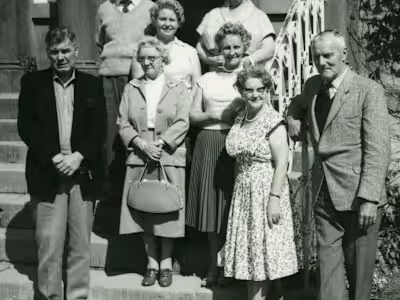The Children Act, by Ian McEwan
The Children Act is Ian McEwan’s thirteenth novel, published in September 2014 with a length of 224 pages. The title of the novel is a reference to the Children Act 1989, an act of the Parliament of the United Kingdom that allocates duties to authorities, courts, and other agents to ensure the welfare and safeguarding of children. Though the law is a central element of the novel, it is not a legal thriller.
The novel revolves around the reach that the law has in people’s lives and the impact that it has on those who make the decisions. Fiona Maye, 59, is a distinguished High Court judge who is very focused on her career. She is in a childless marriage to Jack, an academic who teaches classical history and literature. The story begins one evening when Jack approaches Fiona and asks for her permission to embark on a sexual affair without breaking the marriage because he feels a strong lack of physical intimacy. Fiona is horrified by this and is devastated by the possibility of her long-settled marriage collapsing. That same evening, Fiona is called to judge a case of a hospital that needs to give a blood transfusion to a 17-year-old leukemia patient, Adam, who is refusing the treatment on the basis of religion: he is a Jehovah’s Witness. It seems that Adam and his parents would choose death over disobedience of their beliefs, and it is Fiona’s duty to decide if she rules in favor of the hospital or the boy’s wishes. Mid-proceedings, Fiona decides to visit Adam at the hospital and see for herself Adam’s capability to make a choice. A chain of emotional consequences sets off.
The novel is set mostly in London, moving between the courts, Fiona’s residence in Gray’s Inn Square, and Adam’s hospital room, and it covers the space of several months, though it is not very specific with regard to dates. The story and characters are developed at a good pace, building up gradually into a strong and intense climax.
McEwan’s prose makes a tragic story a most beautiful and thought-provoking one. The characters, flawed as they are in their own ways, make the reader empathize with them. At times, there is a certain coldness about McEwan’s writing which matches the main character’s private, self-contained nature and her rationality.
The layering of legal technicalities and Fiona’s personal problems makes the novel specific and universal all at once. It leaves a question in the reader’s mind: what are we willing to allow in order to remain part of a group? Were Adam’s parents (and he himself) willing to let him die for the sake of obedience to their beliefs? Was Fiona willing to let her husband have an affair in order to still be part of the group that her marriage was in? In this, there is also the matter of decision-making. Who makes the decision and how is it made? The Court decides on the fates of hundreds of families, embodied through its judges. But judges are people too –the cases they try have an effect on them as well as on the families.
For me, the novel was a rite of passage into the world of Ian McEwan. Anyone who has yet to embark on this journey should take this novel as a starting point and begin to dive into the universe of McEwan’s exquisite corpus. No reader should let the legal element discourage him from reading the novel: this short but ambitious book deals with many challenging topics like the influence of religion and of parents on children and the disintegration of a long marriage in a quiet and introspective fashion.
About McEwan
Ian McEwan was born on 21 June 1948 in Aldershot, Hampshire, England. He spent much of his childhood in the Far East, Germany, and North Africa where his father, an officer in the army, was posted.
He returned to England and read English at Sussex University. After graduating, he became the first student in the MA Creative Writing course established at the University of East Anglia by Malcolm Bradbury and Angus Wilson. He is a Fellow of both the Royal Society of Literature and the Royal Society of Arts, a Fellow of the American Academy of Arts and Sciences, and was awarded the Shakespeare Prize by the Alfred Toepfer Foundation, Hamburg, in 1999. He was awarded a CBE in 2000.
In 1976 his first collection of short stories, First Love, Last Rites (1975), won the Somerset Maugham Award. A second volume of stories, In Between the Sheets, appeared in 1978. These stories - claustrophobic tales of childhood, deviant sexuality, and disjointed family life - were remarkable for their formal experimentation and controlled narrative voice.
His first novel, The Cement Garden (1978), is the story of four orphaned children living alone after the death of both parents. To avoid being taken into care, they bury their mother in cement in the basement and attempt to carry on as normal a life as possible, and an incestuous relationship develops between the two eldest children as they seek to emulate their parents' roles. It was followed by The Comfort of Strangers (1981), set in Venice, a tale of fantasy, violence and obsession. The book was shortlisted for the Booker Prize for Fiction.
His next novel, The Child in Time (1987), won the Whitbread Novel Award and marked a new confidence in McEwan's writing. The story is centered on the devastating effect of the loss of a child through abduction. The Innocent (1990) is a love story set in post-war Berlin. Black Dogs (1992) visits the most significant events of modern European history, ranging from Nazi death camps to post-war France and the collapse of the Berlin Wall.
Enduring Love (1997) begins with the death of a man in a ballooning accident, an event that triggers a tale of stalking, fixation, and erotomania. Amsterdam (1998) is described by McEwan as a contemporary fable: three men, a composer, a newspaper editor, and a politician, meet at the funeral of their former lover, sparking off a bitter feud. It was awarded the Booker Prize for Fiction in 1998.
Atonement (2001), shortlisted for the Booker Prize for Fiction and the Whitbread Novel Award and winner of the W. H. Smith Literary Award, begins in 1935 and tells the story of Briony, a young girl, and aspiring writer, and the consequences of the discovery she makes about Robbie, a young man destined to play a part in the Dunkirk evacuations. This novel was adapted for the screen, and the film was released in 2007. Saturday (2005), set on one day in February 2003, won the 2006 James Tait Black Memorial Prize (for fiction).
In addition to his prose fiction, Ian McEwan has written plays for television and film screenplays, including The Ploughman's Lunch (1985), an adaptation of Timothy Mo's novel Sour Sweet (1988), and an adaptation of his own novel, The Innocent (1993). He also wrote the libretto to Michael Berkeley's music for the oratorio Or Shall We Die? and is the author of a children's book, The Daydreamer (1994).
Film adaptations of his own novels include First Love, Last Rites (1997), The Cement Garden (1993), and The Comfort of Strangers (1991), for which Harold Pinter wrote the screenplay, and Atonement (2007).
His novel On Chesil Beach (2007), was shortlisted for the 2007 Man Booker Prize for Fiction, and winner of the British Book Awards Book of the Year and Author of the Year Awards. Recent books include the novel Solar (2010), a satirical novel focusing on climate change, winner of the 2010 Bollinger Everyman Wodehouse Prize; Sweet Tooth (2012); The Children Act (2014); Nutshell (2016); and Machines Like Me (2019).
Like this project
Posted Sep 14, 2023
Article: review of The Children Act, by Ian McEwan.
Likes
0
Views
8





